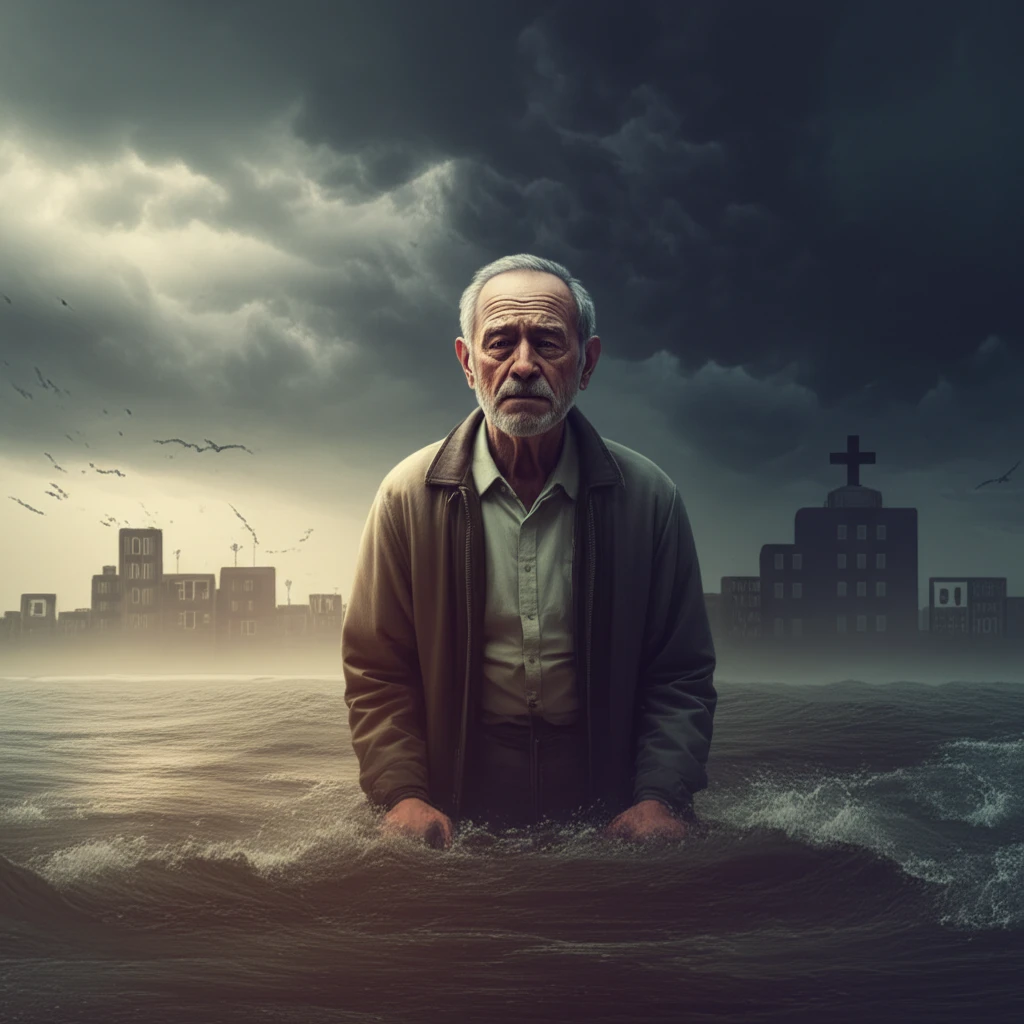
Hurricane Aftermath: How Emotional Distress Impacts Long-Term Health
"A new study reveals the lasting impact of hurricane-related distress on older adults' healthcare needs, highlighting the importance of mental health preparedness in disaster response."
Hurricanes and other natural disasters don't just leave a trail of physical destruction; they also take a significant emotional toll, especially on vulnerable populations like older adults. The stress of experiencing a hurricane, with its threats to safety and disruptions to essential services, can exacerbate existing health conditions and create new challenges.
While the immediate physical needs of disaster survivors are often prioritized, the long-term mental health consequences can be overlooked. A groundbreaking study on older adults who experienced Hurricane Sandy sheds light on the profound impact of emotional distress on healthcare utilization in the year following the storm.
This article delves into the findings of this research, revealing how self-reported fear and distress during Hurricane Sandy significantly predicted increased hospital visits, emergency department (ED) visits, and outpatient care among older adults. We'll explore the implications of these findings for disaster preparedness and the importance of integrating mental health support into comprehensive disaster response strategies.
The Hidden Health Crisis: Unpacking the Emotional Impact of Hurricanes

The ORANJ BOWL Study, a long-term research project tracking the health and well-being of New Jersey residents, provided a unique opportunity to examine the long-term effects of Hurricane Sandy. Researchers linked Medicare claims data from 2012 and 2013 with survey responses from over 1,600 adults aged 65 and older who had experienced the hurricane.
- Be admitted to the hospital within three months of the hurricane.
- Visit the emergency department (ED) more frequently in the year following the hurricane.
- Have more outpatient visits in the year after the hurricane.
Beyond the Storm: Prioritizing Mental Health in Disaster Preparedness
The study's findings serve as a powerful reminder that disaster preparedness must extend beyond immediate physical needs to encompass mental health support. Addressing the psychological distress experienced by older adults during and after disasters is crucial for mitigating long-term health consequences and reducing strain on healthcare systems.
Integrating mental health screenings and interventions into disaster response plans can help identify and support those at greatest risk. This may involve providing access to counseling services, support groups, and educational resources to help older adults cope with the emotional aftermath of disasters.
As climate change increases the frequency and intensity of extreme weather events, it is imperative that we prioritize the mental health needs of vulnerable populations in disaster preparedness efforts. By recognizing the lasting impact of emotional distress, we can build more resilient communities and ensure that older adults receive the comprehensive care they need to thrive in the face of adversity.
